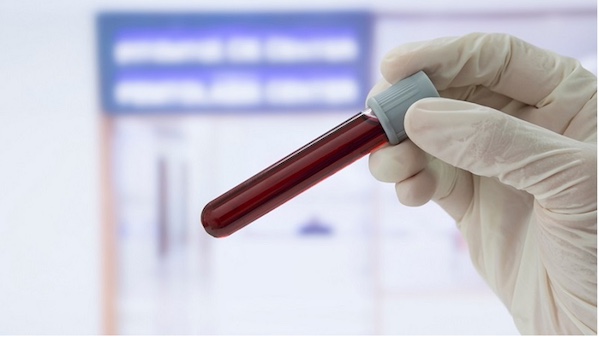Blood Test Accurately Predicts Lung Cancer Risk and Reduces Need for Scans
April 26, 2024
Source: drugdu
 339
339
 Lung cancer is extremely hard to detect early due to the limitations of current screening technologies, which are costly, sometimes inaccurate, and less commonly endorsed by healthcare professionals compared to other screening types. Despite smoking being the primary risk factor, up to 20% of lung cancer cases occur in individuals who have never smoked. The prevailing method for lung cancer screening involves low-dose CT (LDCT) scans. These scans are not only expensive but also prone to generating both false positives and negatives, besides exposing patients to radiation. Consequently, merely about 10% of individuals recommended for screening actually undergo regular scans, a stark contrast to the higher participation rates seen with mammography for breast cancer and colonoscopy for colorectal cancer. As such, lung cancer is often diagnosed at an advanced stage, when treatment options are limited. Researchers are now developing a new blood test aimed at earlier and more accurate detection of lung cancer, potentially improving the chances of effective treatment.
Lung cancer is extremely hard to detect early due to the limitations of current screening technologies, which are costly, sometimes inaccurate, and less commonly endorsed by healthcare professionals compared to other screening types. Despite smoking being the primary risk factor, up to 20% of lung cancer cases occur in individuals who have never smoked. The prevailing method for lung cancer screening involves low-dose CT (LDCT) scans. These scans are not only expensive but also prone to generating both false positives and negatives, besides exposing patients to radiation. Consequently, merely about 10% of individuals recommended for screening actually undergo regular scans, a stark contrast to the higher participation rates seen with mammography for breast cancer and colonoscopy for colorectal cancer. As such, lung cancer is often diagnosed at an advanced stage, when treatment options are limited. Researchers are now developing a new blood test aimed at earlier and more accurate detection of lung cancer, potentially improving the chances of effective treatment.
Researchers at Tufts School of Medicine (Boston, MA, USA) and collaborating institutions are investigating a blood test that utilizes an array to assess DNA methylation levels across approximately 850,000 genomic sites in blood leukocytes, aiming to identify changes in these levels. DNA methylation, a genetic process influenced by environmental factors, is crucial in regulating gene expression and is known to be altered in various diseases, including cancer. It often results in either the silencing of tumor suppressor genes or the activation of oncogenes. The researchers utilized archived blood samples from the CLUE cohort study, selecting those from participants who later developed lung cancer and comparing them to samples from control subjects who remained cancer-free.
Their analysis revealed distinct regions where methylation levels varied significantly between individuals who developed lung cancer and those who did not, corroborating findings from other studies. The researchers are also employing data from the National Lung Screening Trial, which involved smokers, though they plan to extend their research to non-smokers. Their current focus is on determining whether variations in methylation can differentiate between individuals with positive LDCT results who actually have cancer and those with false positives, as well as those with negative results who are cancer-free from those with false negatives who are later diagnosed with lung cancer during follow-ups. The key objective is to enhance early detection through this novel blood testing approach, reducing the need for invasive procedures and potentially saving more lives.
“We believe a blood test using DNA methylation markers could be a better way to stratify cancer risk among people we know are already at higher risk because of their smoking history,” said Professor Dominique Michaud at Tufts University School of Medicine. “Our goal is to identify an effective blood test that can reduce unnecessary scans in the future and help us identify true positive and false negative LDCT scans.”
Source:
https://www.labmedica.com/molecular-diagnostics/articles/294800966/blood-test-accurately-predicts-lung-cancer-risk-and-reduces-need-for-scans.html
Read more on
- Gusekirumab Injection Accepted by CDE, Multiple Pipelines Advancing Simultaneously March 4, 2026
- Yifan Pharmaceutical’s teriparatide injection has been accepted by the CDE (Center for Drug Evaluation), adding a new domestic player to the osteoporosis treatment field March 4, 2026
- //news.yaozh.com/archive/47318.html PD-1 sales surge March 4, 2026
- A major breakthrough! Roche’s oral BTK inhibitor achieves its third Phase III clinical trial victory, a game-changer in the multi-billion dollar MS (manufactured pharmaceuticals) market. March 4, 2026
- GB19 Injection Approved for Clinical Trials of Cutaneous Lupus Erythematosus March 4, 2026
your submission has already been received.
OK
Subscribe
Please enter a valid Email address!
Submit
The most relevant industry news & insight will be sent to you every two weeks.



